Two years ago, Sampdoria was kept in Serie B with the guarantee of immediate promotion to Serie A: instead, it’s now heading toward Serie C. Chievo and Reggina, ruthlessly executed, send their thanks
Third from bottom with 6 games left and on their fourth coaching change (it will be Evani), Sampdoria is one step away from the abyss. A sordid story that bears the signature of the FIGC
(Translated into English by Grok)
The article you’re about to read comes with a dedication (albeit a useless one): I’m writing it in homage to two clubs, Chievo Verona and Reggina, which, due to minor administrative shortcomings compared to the offenses committed by famous clubs with “extraordinary brands” that the establishment protects and safeguards—overlooking all their misdeeds and ultimately absolving them—were sent to the gallows of FIGC sporting justice in recent years. Chievo disappeared from football entirely, while Reggina was condemned to languish in the dungeons of Serie D. For once, I won’t bore you by dragging up the unpunished misdeeds of the club with the most extraordinary brand of all, Juventus, the “model club” to be held up as an example for the entire football movement, as FIGC president Gravina recently said—managing to keep a straight face—while visiting Continassa. Instead, I’ll talk about a club that, in terms of nobility and prestige, can rightfully be considered a sort of “Juventus of Serie B”: Sampdoria.
Why am I talking about it? Because the establishment has been thrown into turmoil and is experiencing restless days ever since Sampdoria’s position in the standings became precarious. With six matchdays left in the Serie B season, Sampdoria is third from bottom, and if the season ended today, they would be mathematically relegated to Serie C alongside Salernitana and Cosenza. The rules dictate direct relegation for the bottom three teams, with a playoff between the fourth- and fifth-from-bottom teams (currently Reggiana and Brescia) to determine the fourth club to be condemned. Even Mancini, the former national team coach, seems to have been enlisted to lend a hand, with his trusted Evani leading a last-ditch effort to save the drifting Blucerchiati ship.
You might say: Okay, but what’s so strange about that? And why all this concern for Sampdoria and not for Salernitana and Cosenza, which are facing the same fate? It’s a matter of brand. Even in Serie B, brand matters. And for Sampdoria, it matters a lot—so much so that two summers ago (June-July 2023), the FIGC allowed them to enter the Serie B championship after their relegation from Serie A, despite a glaring and total lack of the minimum regulatory requirements. In fact, the business plan presented by the Blucerchiati to the Genoa Court to secure all the necessary approvals during the stormy ownership transition from Ferrero to Radrizzani (tax debt settlements, debt restructuring with creditors, and so on) hinged on an indispensable condition: immediate promotion to Serie A at the end of the 2023-24 season (which didn’t happen) and maintaining their place in Serie A for at least the following season (the current one, in which Sampdoria not only isn’t in Serie A but is at risk of dropping to Serie C).
Amid general indifference, I had covered that scandal. I uncovered and denounced the colossal wrongdoing blessed by the establishment in an article written for Substack (and subsequent ones) dated October 4, 2023, titled: “Did You Know? Sampdoria Must Necessarily Be Promoted and Survive in Serie A Next Year.” Subtitle: “Ten Questions for FIGC President Gravina, Overwhelmed by Yet Another Italian Football Scandal – The Shameful Rescue of the Blucerchiati and Reggina Sent to Serie D for Far Less.”
To help you understand what an outrageous farce had been orchestrated, and on what entirely anti-regulatory premises Sampdoria—now in the hands of Manfredi and Radrizzani—was enrolled and admitted to the Serie B championship despite a financial situation that was shaky at best, I’m republishing here the 10 questions I posed at the time to FIGC president Gravina. Needless to say, I never received a response.
Is it true, or not, that Sampdoria—a club duly registered by the FIGC for the Serie B championship—submitted a business plan to the Genoa Court tying the settlement of tax debts, the completion of the club’s purchase by investors, and the restructuring of debts with creditors to two conditions: an immediate return to Serie A at the end of the current season and guaranteed survival in Serie A the following season, without which the estimated negative impact would be 49 million euros and would have disastrous effects?
Is it therefore true, or not, that a club admitted to the Serie B championship “must necessarily” win promotion to Serie A and “must necessarily” be saved from relegation in the subsequent Serie A season, or else face bankruptcy?
Is it true, or not, that in the club’s debt restructuring agreements—estimated as of May 31 last year at 150 million and 904 thousand euros—there is a debt to the Italian Revenue Agency amounting to 49 million and 100 thousand euros: a sum that, in a bankruptcy scenario such as failing to achieve promotion to Serie A, would result in virtually no satisfaction for privileged creditors like the Revenue Agency, SACE, and MCC, as emerges from the appraisal signed by Dr. Raffaele Marcello on the company’s liquidation value?
Is it true, or not, that on August 7, the Revenue Agency gave its approval to write off 65% of Sampdoria’s debt, meaning the club will pay only 17.7 million euros against a debt of 49.1 million, saving 31.4 million? If so, can the tax installment request submitted by the club in December 2022, when it was already in a pre-bankruptcy state (“If we don’t find 40 million, we’ll fail,” said board member Panconi on October 17, 2022), be considered legitimate?
5. Is it true, or not, that under Massimo Ferrero’s “Sport Spettacolo Holding Srl,” receivables due by December 31 of the following year (2023) amounted to 28 million and 199 thousand euros? If so, given that on June 15, 2023 (the eve of the board meeting to approve the financial statements as of December 31, 2022), “Sport Spettacolo Holding”—i.e., Ferrero—lost its status as a controlling company with the early termination of group taxation, meaning losses remain with the consolidating entity—what happened to this 28-million-euro “hole” in Sampdoria’s 2022 financial statements? Isn’t this a clear case of false accounting?
6. Is it true, or not, that if Sampdoria’s financial statements had been prepared with a truthful representation, it would have been impossible to reach the agreement with the Revenue Agency, and COVISOC would never have granted authorization for the club to register for the Serie B championship, since an additional 28 million in losses would have barred Sampdoria from any transfer market activity for several windows?
7. Is it true, or not, that the three banks that had granted the club “Covid loans” proceeded to enforce their guarantees, and that SACE (i.e., the Italian state) is a creditor of Sampdoria for approximately 48 million euros? If so, why is it that the club can repay this debt in a single installment in 20 years, on December 31, 2043, with a favorable interest rate of 2.5% starting only in 2026, of which Sampdoria can pay just 0.25% annually, deferring the rest to 2043? And furthermore, in the event of Sampdoria’s sale before 2043—an almost certain occurrence—will the club be required to pay only 50% of this debt?
8. Why, pray tell, was Sampdoria granted all these favors and admitted to Serie B, while Reggina, with a far less severe debt situation, was relegated to Serie D?
9. Is it true, or not, that the FIGC and its Prosecutor’s Office turned a blind eye and a deaf ear to the fact that Sampdoria’s rescue was carried out for purely “political” reasons that should have nothing to do with sporting regulations? “We received strong pressure to provide this support,” Gianluca Garbi, CEO of Banca Sistema, openly declared to TV and newspapers on July 5 last year, “from many other clubs, some unthinkable, and from various national and local political and administrative bodies.” Who exerted this strong pressure?
10. Why, given the uproar over yet another scandal tarnishing the image of Italian football, don’t you hold a press conference to clarify the different treatments applied by the FIGC to Juventus and Sampdoria on one hand, and Reggina and Chievo on the other? Explaining why petty thieves were sent to the gallows (Chievo) or exile (Reggina), while clubs with superior or even luxury brands like Juventus were handled with kid gloves despite far graver and proven misdeeds?
Two summers ago, Sampdoria was enrolled in the Serie B championship on a financial framework that was, to put it mildly, crumbling. As you’ve read, for the Genoese club to stay afloat, it “had to” be promoted to Serie A and “had to” maintain its place in Serie A the following season (i.e., this one). A laughable and untenable scenario from every perspective, especially a regulatory one. How things turned out is plain for all to see: not only did Sampdoria fail to gain promotion to Serie A last season, but, remaining in Serie B, they now risk falling to Serie C—a development that would cause upheaval of unimaginable proportions on every level.
Two years later, with the cows already out of the barn, everyone suddenly notices the ugly mess that was set up and the disaster that relegation of this club—kept alive on life support—would trigger today. Yesterday’s Gazzetta.it read: “With relegation, the premise of the industrial plan presented to support the validity of the company’s financial restructuring (the so-called debt restructuring agreement), which did not account for Serie C, would collapse. Thus, all the agreements for the ultra-deferred payment of debts would hold only if the shareholder immediately injected fresh capital sufficient to guarantee those debts (no longer backed by the failed industrial plan). Moreover, the auditing board itself would be forced to flag the lack of business continuity. In short, the scenario opened by relegation could have far graver consequences than those purely sporting.” Welcome to the real world, Gazzetta!
The situation is dramatic from every angle. From a sporting perspective, after Pirlo was replaced by Sottil, and Sottil by Semplici, yesterday saw the arrival of the fourth coach with the choice of Semplici’s successor. Alberico Evani, a former Sampdoria player (and Milanista), who for five years was Mancini’s assistant with the national team, has taken the Blucerchiati bench. Mancini himself, called to act as a remote supervisor, recommended him to the ownership along with another loyalist, Attilio Lombardo—also a former Sampdoria player—who will be Evani’s assistant. The hope is that the “Mancini supervision” proves better than the “Paratici supervision,” which, albeit under the radar due to a ban preventing the executive from operating openly, guided Sampdoria’s path after their relegation from Serie A to Serie B in May 2023. Perhaps Paratici’s compass wasn’t well-calibrated: the fact remains that Sampdoria, instead of heading toward Serie A, has veered toward Serie C.
But it’s not over yet. Alarms are ringing throughout the establishment, and the rallying cry echoing in every room is: “Save Private Blucerchiato.” The troops are mobilized. And so: Gravina’s FIGC apologizes to Cosenza, Salernitana, Reggiana, and Brescia (or perhaps Cittadella, Sudtirol, or Mantova) for the inconvenience caused. But there’s a brand to save here, and in the little garden of Italian football, no one stands in the way of a brand. Even if it’s just a minor brand—like Sampdoria’s.





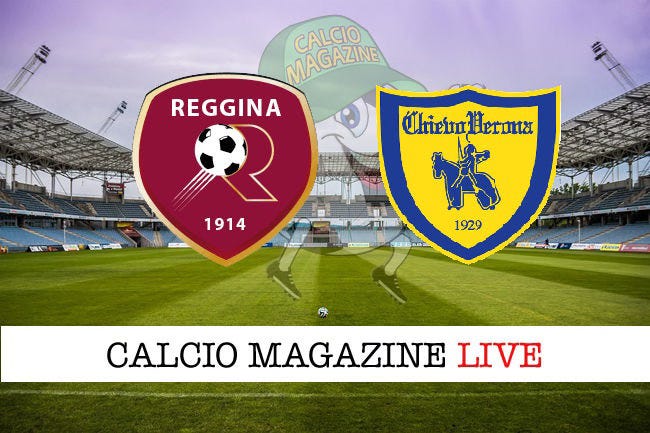
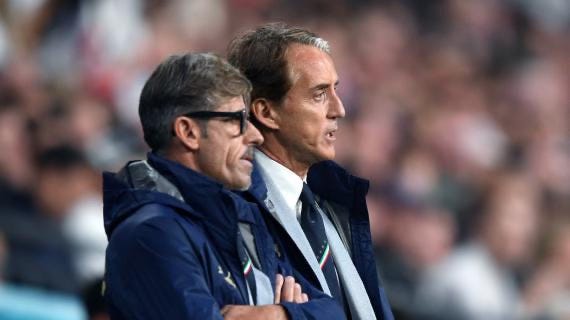
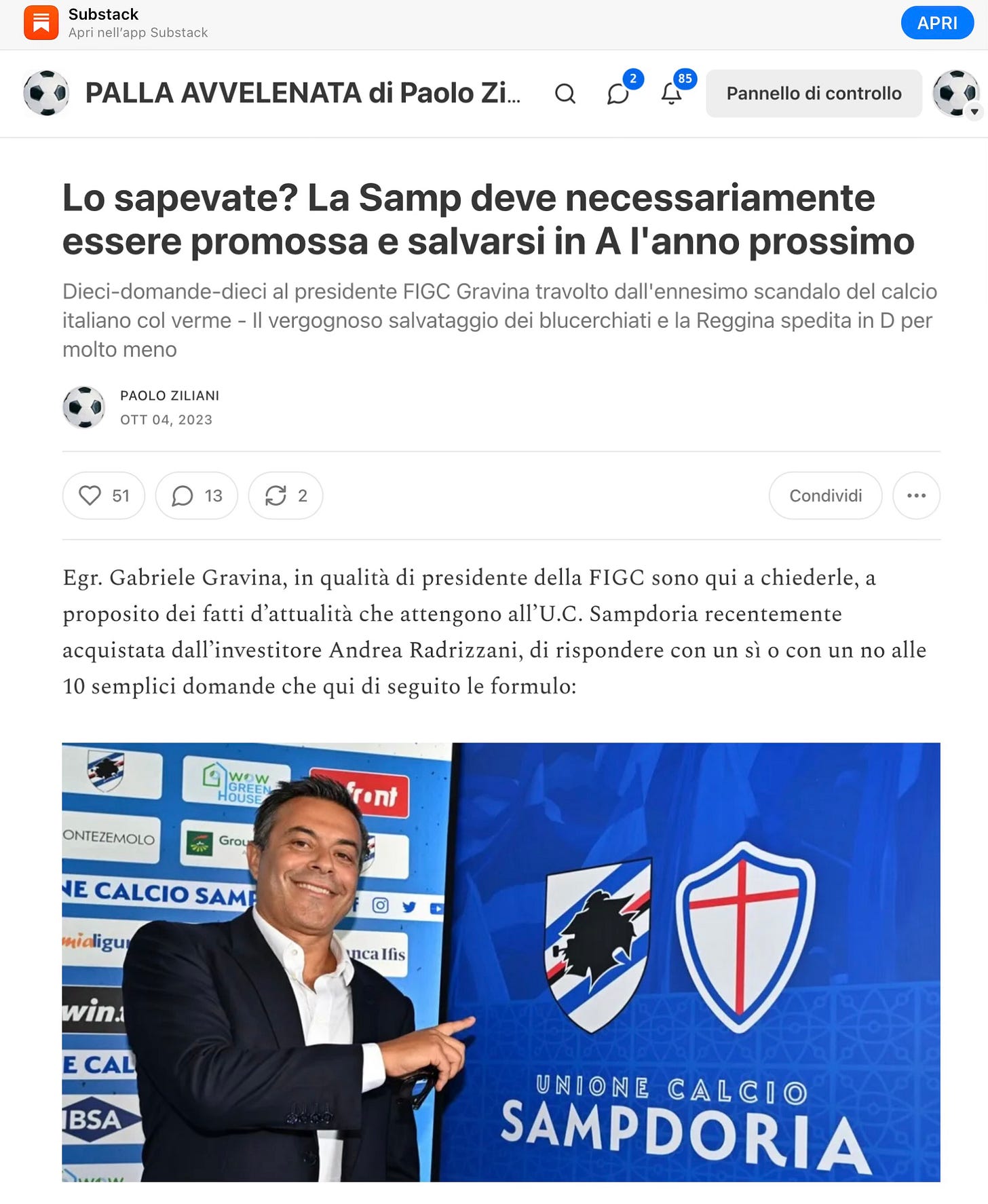
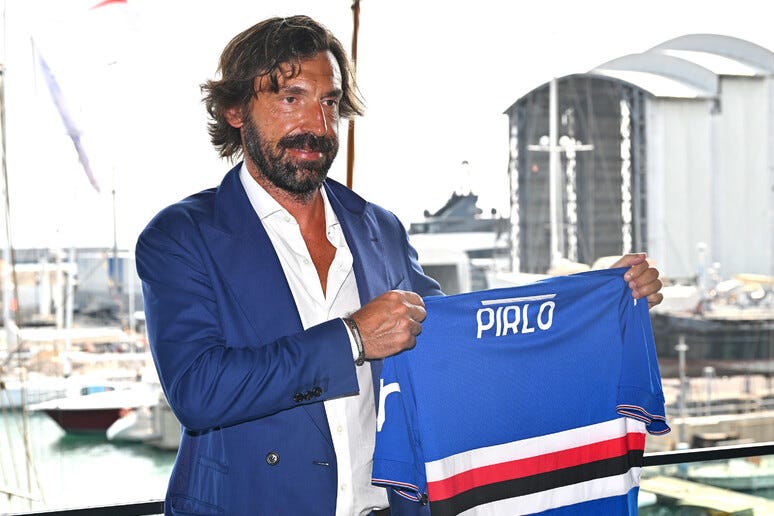
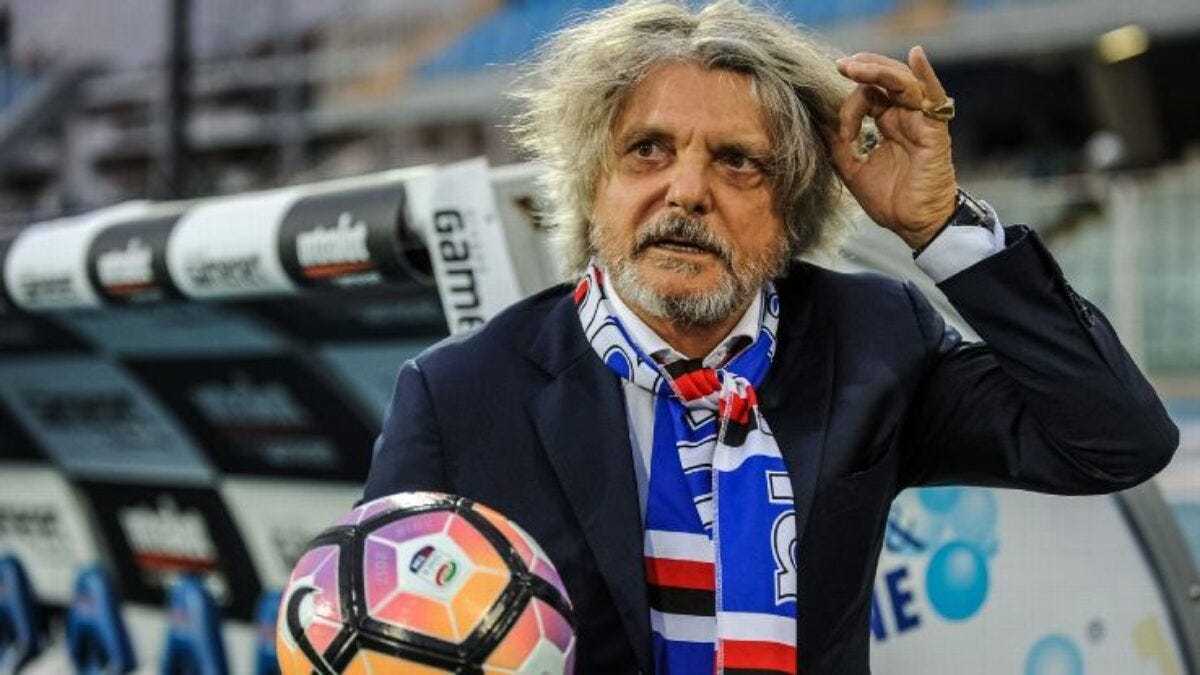
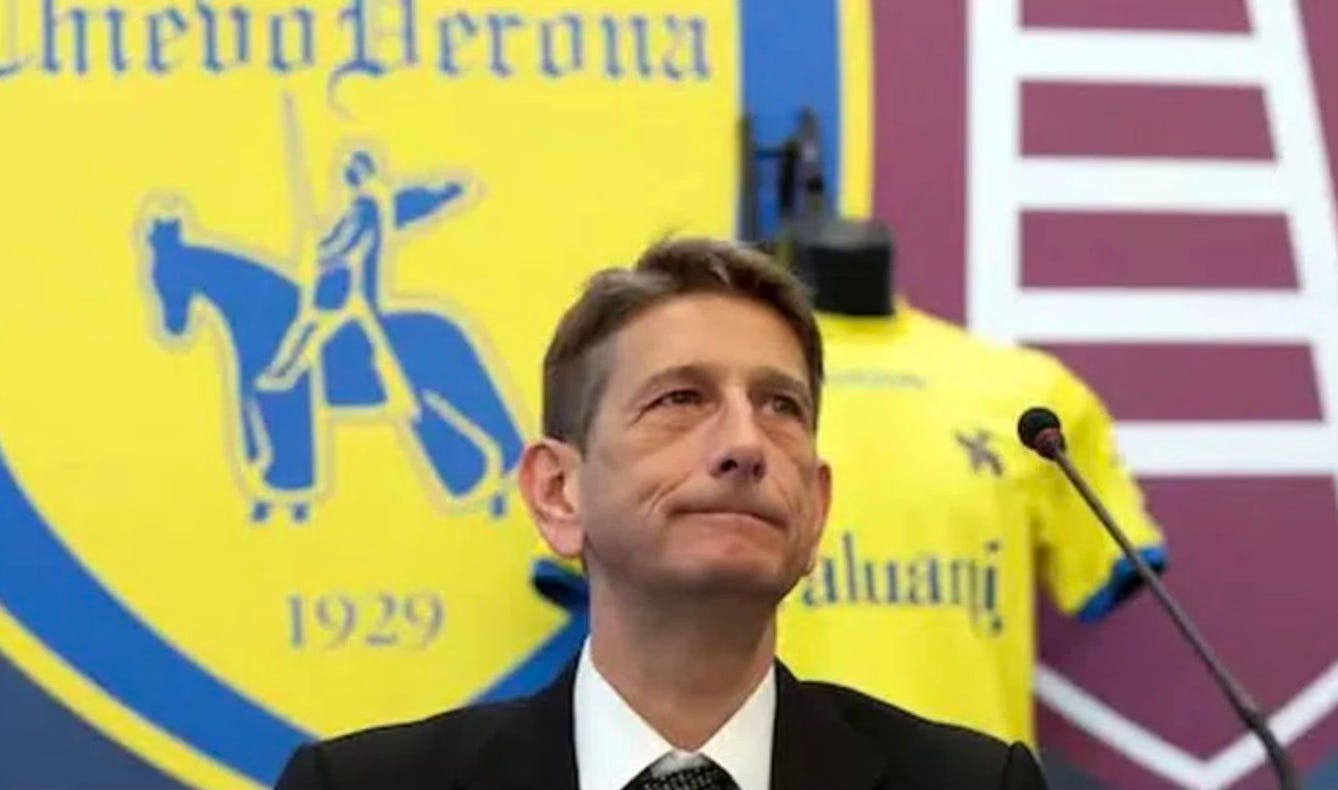
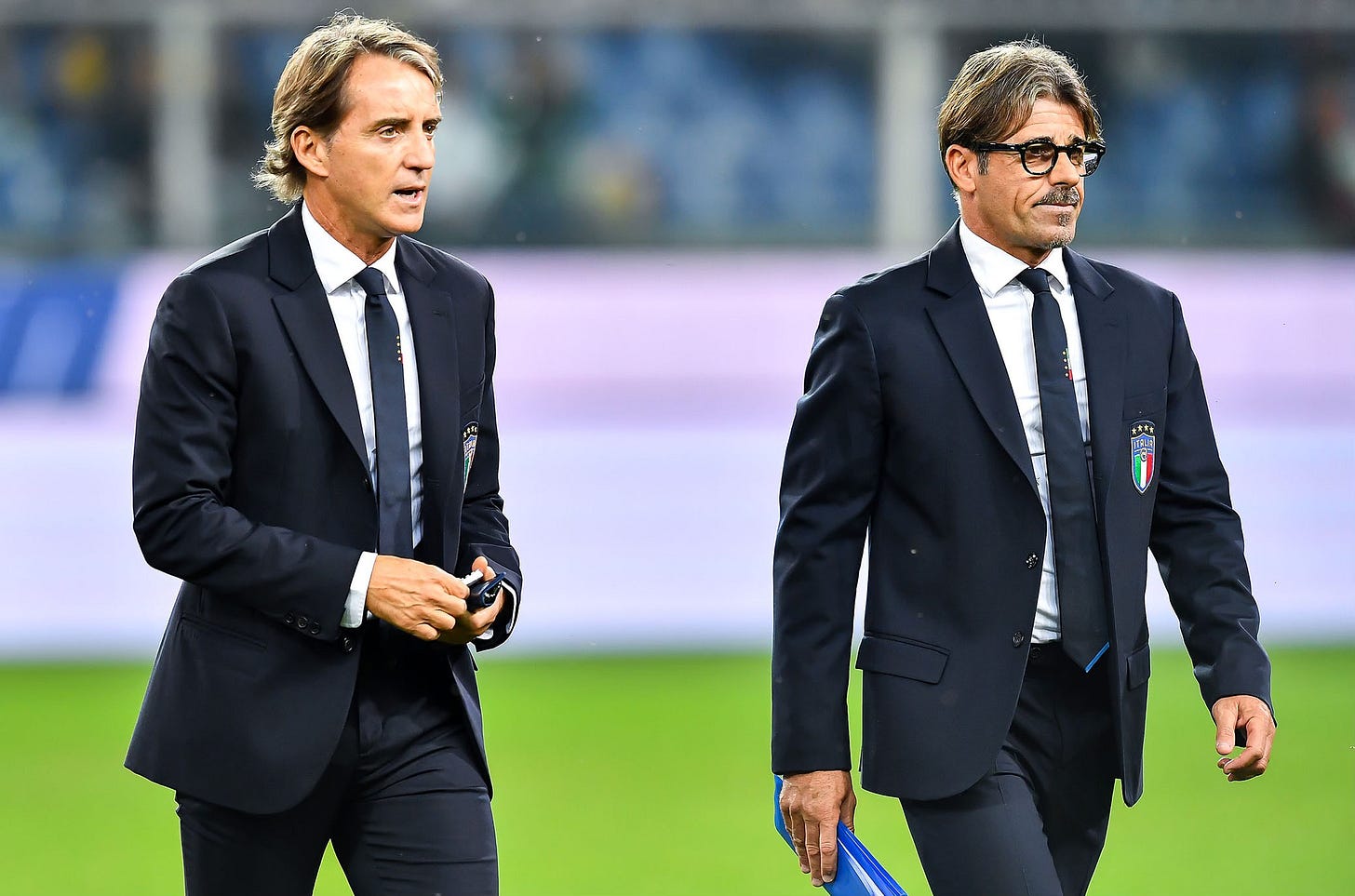

la butto li... forse la samp è legata al mondo degli agnellini?
A me indigna ancora di più lo sporco teatrino che stanno facendo in questi giorni, questa pagliacciata di Mancini e dei suoi adepti (ma a parte qualche giovanile della Nazionale, Evani ha mai allenato da qualche parte? E il figlio di Mancini a Barcellona cosa faceva, il magazziniere della Cantera?). A me sa tutto di "minacce trasversali" in primis agli arbitri che ora li aiuteranno spudoratamente. Bisognerebbe che le società coinvolte in zona retrocessione e le loro tifoserie reagissero contro questo schifo, per cercare di garantire che le cose vada come devono andare (che vuol dire che si salvino o meno, ma per una volta solo con le loro forze).